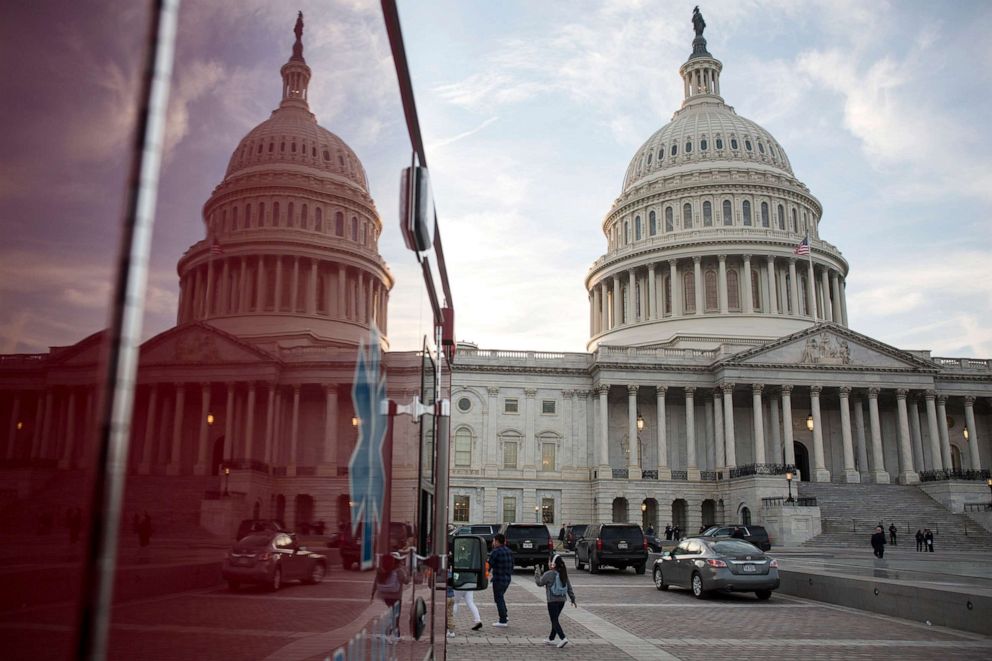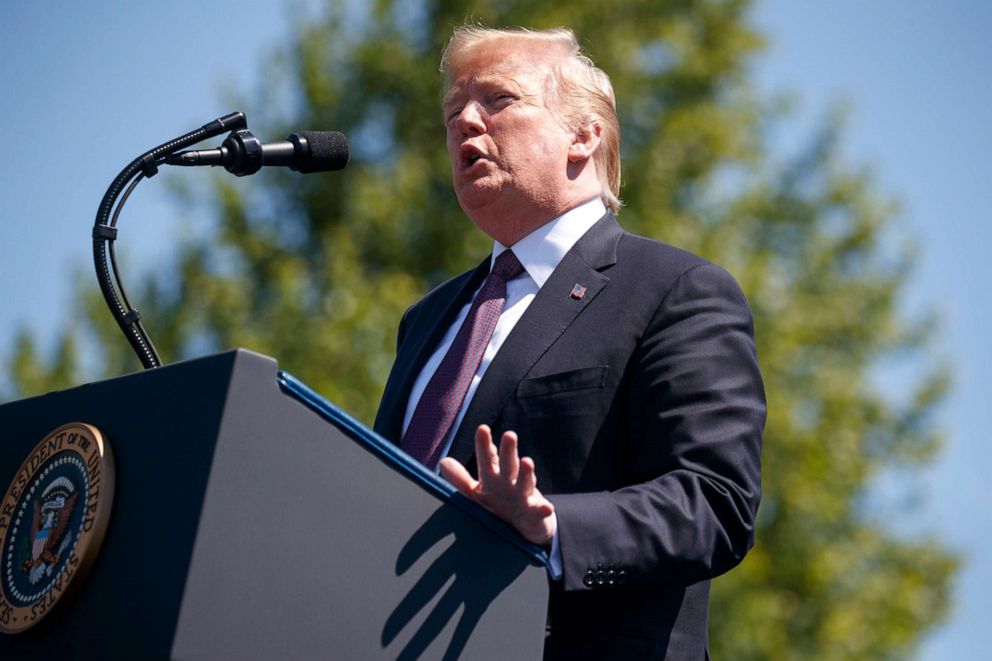Trump administration is resisting, but congressional oversight is necessary to prevent government abuse: ANALYSIS
The Treasury Department has resisted subpoenas for Trump's tax returns.
Our government is built upon a foundation of checks and balances -- a system meant to ensure that the power of each branch of government serves as a "check" on the power of the other two.
One such "check" is the ability of Congress to conduct oversight investigations over the executive branch, an authority Congress has exercised since the earliest days of the republic.
Of late, however, President Donald Trump's administration has adopted and repeatedly employed a broad legal argument as justification for defying Congressional Democrats' oversight efforts: If there's no legislative purpose, Congress isn't entitled to investigate it.
When the Treasury Department denied the House Ways and Means Committee's efforts to retrieve the president's tax records, for example, Treasury Secretary Steven Mnuchin wrote earlier this month that "the committee's request lacks a legitimate legislative purpose."
In a letter informing the House Judiciary Committee that the White House would not comply with a request for documents related to its wide-ranging investigation of the president, his campaign and his businesses, White House counsel Pat Cipollone wrote Wednesday that "the committee has not articulated any proper legislative purpose."
Time and again, the Trump administration has exercised variations on this argument to ward off Democrats' overtures for documents and testimony.
But the argument has several flaws.

While Congress is to avoid investigating strictly private affairs of individual citizens, Congress has been afforded sweeping investigative powers.
From the earliest days of our republic, Congress has exercised this authority to inform the development of legislation, to investigate issues of public policy that may require legislative action in the future, and to ensure that public funds are utilized effectively and free from waste, fraud and abuse.
Over the years, Congress has investigated, among other issues, the space shuttle Challenger explosion, steroid abuse in professional sports, threats of economic espionage to U.S. corporations and alleged presidential abuses of power and corruption. These include the Teapot Dome scandal of the 1920s that rattled President Warren G. Harding's administration and the 1970s Watergate scandal that brought down President Richard Nixon's.
Moreover, it is Congress, through the impeachment process, that serves as the venue for adjudicating allegations of wrongdoing by the president of United States.
In fact, the executive branch itself has conceded that Congress has the right to investigate the president. A 1973 Office of Legal Counsel opinion states explicitly that "in the event of suspicion of serious wrongdoing by a sitting president, the media and even Congress (through its own investigatory powers) would likely pursue, collect and preserve evidence as well."
Special counsel Robert Mueller's office referred to the 1973 OLC guidelines in its 448-page report, saying that "Congress can permissibly criminalize certain obstructive conduct by the president."
Using the White House counsel's own criteria for cooperating with Congress, the Mueller probe revealed multiple gaps in current law that increase the vulnerability of the United States to foreign interference in our electoral process -- vulnerabilities that can be addressed in part by legislative action, such as making it illegal for a political party or candidate for elected office to knowingly receive assistance from a foreign entity or establishing cybersecurity standards for state election systems.

When crafting the Constitution, the framers envisioned the need to prevent tyranny, corruption and abuse by corrupt leaders.
As James Madison wrote in Federalist Papers 51, "It may be a reflection on human nature, that such devices [checks and balances] should be necessary to control the abuses of government. But what is government itself, but the greatest of all reflections on human nature? If men were angels, no government would be necessary. If angels were to govern men, neither external nor internal controls on government would be necessary."
At times, congressional oversight can be unwieldy, ineffective and frustrating. At times, congressional oversight has been used inappropriately, as in the case of The House Un-American Activities Committee, which was created in 1938 to investigate alleged disloyalty and subversive activities on the part of private citizens, public employees and those organizations suspected of having Communist ties.
But at various times in our history, corruption and programmatic malfeasance has come to light only through the investigative efforts of Congressional committees. Regardless of one's political orientation we should all agree that our system of checks and balances must be respected and protected.
John Cohen is an ABC News contributor and a former senior official at the Department of Homeland Security and senior investigator on the U.S. House Judiciary Committee.